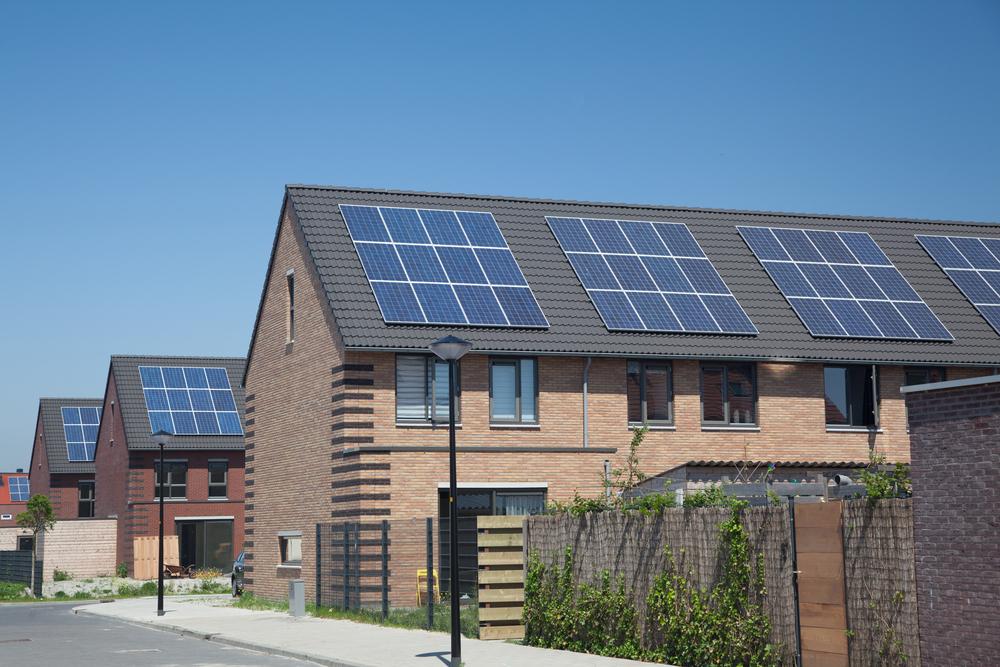Approved Trader
Choosing What Plants To Use For Your Conservatory
Air Conditioning
Services

Find a local trader and receive competitive FREE quotes?
Many of us love spending time in the garden surrounded by plants, but keeping your garden looking attractive in the winter can be challenging, not to mention you not wanting to sit outside in the cold and rain. A conservatory can be a fantastic addition to your property and a portal from the inside of the home to the outside of your property, allowing you to grow attractive plants all year round for you to enjoy.
Here at Approved Trader you will find different plant arrangements for your winter garden in the conservatory. Which plant variants are possible for your conservatory.
Before you buy your desired plants, you should clarify the site conditions in your conservatory. Pay particular attention to the climatic conditions in the winter months, so that your plants remain healthy in the long and vital in the selection.
Plants for your conservatory winter garden
If you choose plants for the winter garden, you should position and temperature must be taken into account, because not all plants are best suited for housing in your conservatory.The most important criterion in the selection of plants your conservatory is the temperature, since there are plants that can deal with the cold and those that need a warmer soil or ambient temperature. Here you will find a tip or two for the compilation of the plants.
The choice of plants
If you have an unheated conservatory, which is perhaps geared more to the north, you should consider the use of hardy plants such as olive or bamboo trees as a preference. In a warmer conservatory, the use of Mediterranean plants can be a good option. In warm winter gardens you have more choice: Plants come from subtropical regions as well as question the most exotic climbing plants. Tip: If you have a warm winter garden, you can draw on unlimited resources and also home to tropical plants. However, you have to reckon with the high cost of heating and additional humidification, if you choose such plants for your conservatory.
Conservatories can be a great environment for your plants giving you natural sunlight through the glass, along with a consistent temperature through your home heating system. The use of the proper plants can give you a relaxing environment and a beautiful scenery and view for you to enjoy.
A conservatory garden is for many people a place of peace, a place where you can let your soul relax. Plants in your conservatory are protected against wind and rain, frost can be prevented. You will need a water supply for irrigation of plants and heating should be available. Through a the glazed conservatory sun rays can be trapped and it comes to heating of the glass house. In this light, climbing plants and potted plants develop best.
Acacia (Acacia sp): Mediterranean / very light / moderately but regularly administered to 12 cm / water, winter garden plants fertilize normal / winter less water, no fertilizer / hire. Pests
Osmanthus (Osmanthus): Hold Japan, Southwest China, Eastern Himalaya / 1.5-3 m / summer quarters Outdoor / pots in the house / conservatory plants constant slightly moist, no editing / uniform soil moisture retained, the end of winter, just before the new shoots of the plant cutting / occasionally scale insects.
Ivy (Hedera helix): Forests of Central and South Europe / 20 m / bright location with very little direct sunlight, high temperature / not too dark / plants evenly pour / pour sparingly every 14 days with liquid fertilizer in moderate concentration / pests may
Figs (Ficus): sun, partial shade and sheltered from the wind, balcony / cold conservatory, Apartment / give water regularly, do not cut, weekly pass quality fertilizer / even watering, cutting back in February / hire. Spider mites
Pomegranate l (Punica) seed in the sand on a balcony or terrace cultivation based / cold conservatory / moderate enter water, two to three times per month / winter hardly any water, no fertilizer, cut only when needed / in May aphids possible
Jasmin keep China Ceylon India / balcony and terrace / bright and free from drafts / moist, every 14 days Fertilizer / moisten only the ball of the winter garden plants in winter, do not fertilize / pest-free: (Jasminum)
Persimmon (Diospyros): China, Japan, Korea / sun / garage, a shed or a gazebo / up to ten Mn / substrate of the winter garden plants moist, but once a week fertilizer, very tolerates pruning / for watering seedlings must not be wet, and young plants a sprayer, once, at the end of winter known (late February, early March) / no diseases or pests per week
Cacti (Cactaceae): light and warm / cool, dry / regular watering / Setting the casting at the cactus, once a month fertilizer / cacti are not pest-free
Kiwi (Actinidia chinensis): Woodlands China, Taiwan / hold up to 10 m high / full sun / moist, cut back after flowering / possible pests
Pittosporum (Pittosporum): sun, partial shade / cold conservatory / moderate to strong water person, not cut, treated with high-grade pot plants fertilizer / keep moist, cut back in February, two to three times a month fertilizer / scale insects and aphids possible
Laurel (Laurus): sun and shade, balcony and terrace / cold conservatory / slightly moist soil, trim if needed / avoid waterlogging, do not cut in the middle, in March fertilize once with high-quality fertilizer / hire. Sign lice and brown stool
Mediterranean Cypress (Cupressus sempervirens): Eastern Mediterranean / 4-6 M / terrace, Outdoor / In house / Cypress need plenty of water, so every day watering / susceptible to bark beetle
Myrtle (Myrtus communis): Mediterranean / slightly sunny to semi-shaded outdoor space / in the flat water up to 5 m / / plentiful. / On 1-2 pairs of leaves cut back / moderate water / can be infested with all pests.
Olive (Olea): Mediterranean room / balcony, terrace / plant in the cold winter garden / plants water sparingly, not cut, fertilizer / olive tree watering once a month little, cut back shoots in February, potted plants fertilizer / pest on olive tree: possible
Pepper Trees (Schinus): Central and South America from Mexico to Argentina / up to 5 M / Optional sunny to semi-shady positions / light at 8 ° C (+ / - 5 ° C) / water consumption by the Fiederlaub very high, liquid fertilizer per week / Uniform soil moisture, March / April zurückschneiden/Schild- or mealybugs possible
Star jasmine (Trachelospermum): Sun or partial shade, balcony or terrace / conservatory / even water delivery, no editing, two to three times a month / winter only low water supply, nozzles in February, no fertilizer / possibly spider mites, aphids
Succulents (Suculentus): bright and sunny location / greenhouse / regularly give / watering water restricted, plants are fertilized every two weeks, separate side shoots and in the earth Set / pests possible
Trumpet creeper (Campsis radicans): North America / sunny, warm, Terrace / cold conservatory / 8 to 10 m / watering during drought / only when necessary water / bug-free
lemon shrubs (Aloysia): South America / two to six M / shade to semi-shade / cold water at a maximum of 5 degrees / regularly good, every 14 days in the growth / water cut back in the spring so that the root ball does not dry / can have aphids
Cistus / watering Mediterranean and Canary Islands / up to 2 m height / sunny, warm place / in the house excessively, do not cut, easy Shorten plants twice a month with high-quality liquid fertilizer container plants /, do not fertilize / aphids in May: (Cistus).
Lemon shrubs (Aloysia): South America / two to six m / shady to semi-shady cold water / maximum of 5 degrees / regularly good, every 14 days in the growth, watering pruning in spring / so that the root ball does not dry / can have aphids



